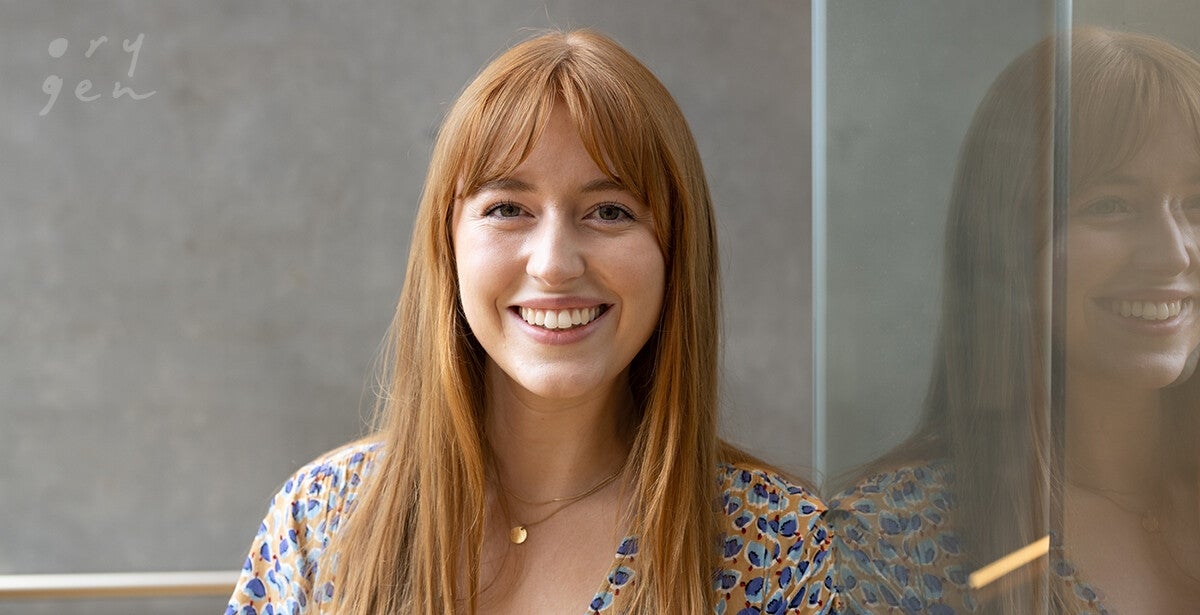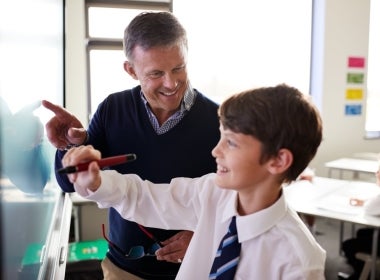
What is intergenerational fairness and what’s it got to do with mental health and wellbeing?
Intergenerational fairness is a concept that has gained momentum in recent years. But what is it and how does it relate to the mental health and aspirations of young Australians?
Below, read insights from Ella Gow, the Acting Senior Advocacy and Engagement Advisor at Orygen. Ella is a public health professional with experience leading the partnerships, advocacy and engagement portfolio of Orygen's policy team.
Intergenerational fairness has been gaining attention in recent times, but it's about much more than pitting “rich boomers” against “snowflakes” and making sure there’s enough avocado toast to go around.
Intergenerational inequality is having tangible impacts on young people today, with potential flow-on effects for mental health and wellbeing.
There are even calls for a parliamentary inquiry into intergenerational fairness and the appointment of a Future Generations Commissioner in Australia, after the successful adoption of the role in Wales.
So, what exactly is intergenerational fairness?
Intergenerational fairness refers to the concept that there should be economic and social equity between generations and that the interests and needs of both present and future generations are taken into account. It emphasises the idea that the actions and decisions of one generation should not unfairly burden or compromise the wellbeing and opportunities of future generations.
At its core, intergenerational fairness is the responsibility to enhance Australia's condition beyond our time, refraining from jeopardising the prospects of future generations for short-term gains.
What does intergenerational fairness have to do with mental health and wellbeing?
Australia's young people, born after 1995, are poised to be the first generation worse off compared to their parents, due to challenges such as housing shortages, precarious employment and the impacts of climate change disrupting their opportunities.
These intergenerational issues were highlighted in data from the 2023 Australian Youth Barometer, which showed an increase in mental health challenges and pessimism about the future in young Australians aged 18–24 years old.
The top three pressing challenges nominated by respondents for immediate action included housing (70 per cent), employment opportunities (51 per cent) and climate change (42 per cent).
The World Health Organization (WHO) echoes this concern about climate change and acknowledges that the majority of the world's 2.2 billion young people bear a disproportionate impact from changes in their environment, both in the short and long term. The enduring health effects of climate change and its contributing factors on young people can persist throughout their lives and cause significant psychological distress.
However, it’s worth noting that there is a shortage of data and research to assist in understanding what the relationship is between young people’s experiences and perceptions of intergenerational inequity and their mental health and wellbeing. As such, there is an opportunity to consider this theme within future youth mental health research and within survey instruments that seek to understand how young people are faring.
How can we achieve intergenerational fairness?
To achieve intergenerational fairness in Australia, we need to drive cultural and institutional change through collaboration across civil society, sectors and the political spectrum. It requires intergenerational collaboration and solidarity.
To achieve this, The Intergenerational Fairness Coalition has been formed, with Orygen as a founding member. The coalition is a collective of 20 Australian organisations that recognise the need for increased long-term thinking in Australian policymaking.
The coalition envisages a brighter future for Australians, where long-term thinking, sustainability and equality are front of mind. It believes in the potential of pragmatic and economically-minded approaches to safeguard Australia's future and address long-standing and emerging challenges.
Crucially, it believes that recognising and honouring the sacred 65,000-year history of First Nations peoples and cultures across the land we know as Australia today, is essential to realising its vision and embracing the potential of our shared future.
The future health and wellbeing of Australians requires governments to embed long-term thinking and apply greater priority to intergenerational fairness.
Ella Gow is the Acting Senior Advocacy and Engagement Advisor at Orygen.
You can drive a positive impact with VU Online’s Master of Child and Adolescent Mental Health. Commonwealth Supported Placements (CSP) are available for new and eligible students for the Graduate Certificate in Child and Adolescent Mental Health. This qualification comprises the first four units of the masters degree. To learn more, call our team on 1300 682 051 or email futurestudy@online.vu.edu.au.



